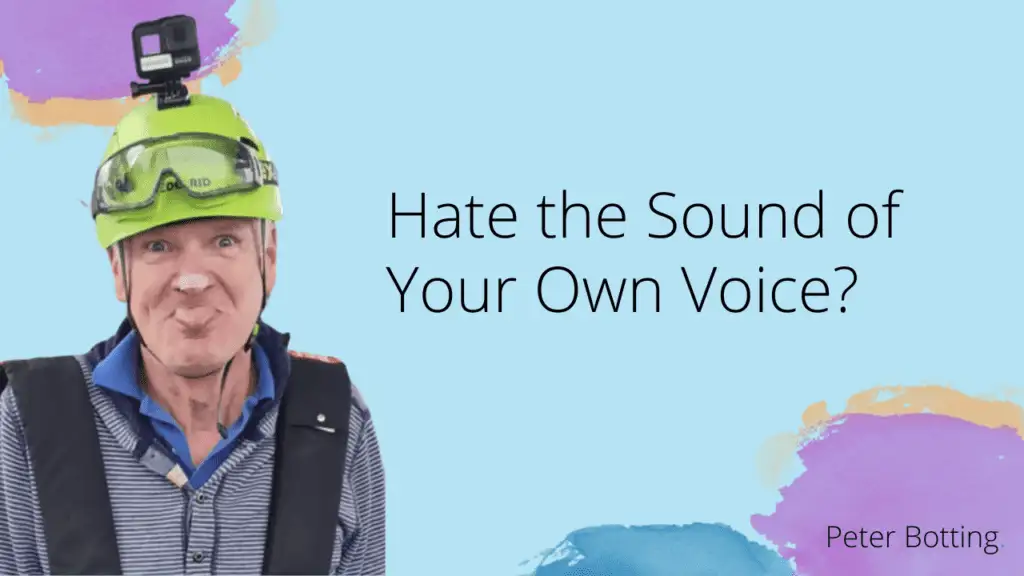I used to hate hearing any recording of my voice. My voice was the most unpopular part of my body, the thing I disliked the most. Hate slowly became a mere detest, then dislike, then I learnt to tolerate it. Now, it is what it is.
But, when I hear a recording of my voice, it is still entirely different from the one I hear every day when I talk with friends, coach, give a speech or presentation, do a webinar, or participate in a podcast.
But why is that? Are you the same?
Why do people dislike the sound of their voice?
Most people I meet dislike the sound of their own voice when it is played back on a recording. (Cue a predictable joke about all the politicians I have worked with!). People, even politicians, often dislike the sound of their voice when they hear it played back due to a mix of physical and psychological factors.
Physical factors affect how we hear our voices.
The sound of our voice is affected by how sound waves travel through our bodies. When we speak, sound waves travel through our vocal cords and into our mouth, nose, and sinuses, which shape the sound before it exits our body and enters the air. This is apparently known as the “vocal tract transfer function,” which is unique to each individual.
When we hear our voice in real-time, we hear the sound waves that enter our ears from the air and are transmitted directly to our inner ear through bone conduction (vibrations). This combination of air-conducted and bone-conducted sound gives us a richer and fuller experience of our voice than what we hear when we listen to a recording of our voice, which only captures the air-conducted sound. It also gives us a different perception of our voice than what others hear when they listen to us speak.
But when we listen to a recording of our voice, we only hear the sound waves that travel through the air and not the vibrations that we feel in our inner ear. This can make our voice sound unfamiliar and unappealing to us.
This TEDx talk might explain it better than I have.
https://www.youtube.com/shorts/vBkCIFtIyqs
Psychological factors affect how we hear our voices.
Psychologically, our dislike of our voice can be influenced by factors such as our self-consciousness, self-esteem, and social anxiety. Hearing our voices played back to us can be a confrontational and unsettling experience, like looking at photographs of ourselves*. This is emphasised if we already feel insecure about our voice or how we sound to others.
*The picture at the top of this post was taken before I went ziplining – I am sufficiently scared of heights that it overrode my dislike of pictures!
How to combat the dislike of the sound of your voice?
- Acceptance: Recognize that it’s not just you. It is you, me and everyone else. It is what it is – accept that everyone’s voice sounds different to them when recorded, and it’s normal to feel a little uncomfortable when hearing it back.
- Focus on your message: Instead of focusing on the sound of your voice, focus on your message and purpose. What you are saying is more important than how you sound. Gandhi is the perfect example of this.
- Familiarisation: You should be listening to recordings of your voice while you are rehearsing for speeches, presentations, and pitches – this can help you become more used to the recorded sound of your voice and help you feel more comfortable with it over time.
- Change how you speak. This is not always necessary and should be considered a last resort. But in properly assessed situations, it might be advised that you, with lots of practice, change your volume, tone, pace or pitch.
- Seek professional help: If your dislike of your voice is causing you significant distress or anxiety or preventing you from career or personal opportunities, you may benefit from the help of a therapist or counsellor to work through this. If it is a physical issue, such as nasal blockages, please consult your Doctor.
N.B. I am NOT talking about your accent.

